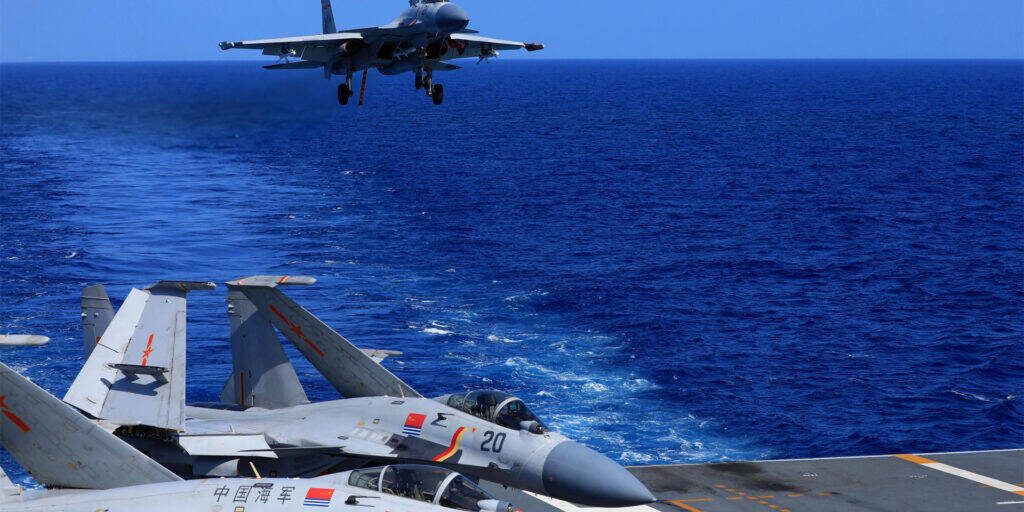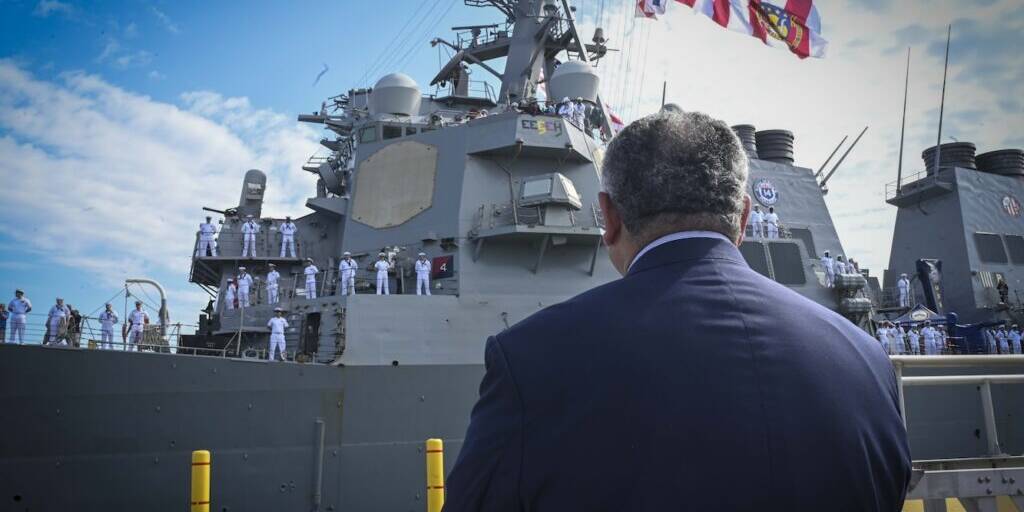Richard Dunley, for ASPI The Strategist
The 2023 defence strategic review has been broadly welcomed across the Australian strategic policy commentariat. The reasons for that, and the analysis of what it means, however, are oddly diverse. Deputy Prime Minister and Defence Minister Richard Marles in his opening statement frames it as ‘the most ambitious review of Defence’s posture and structure since the Second World War’. Some commentators have agreed, arguing that it represents ‘the boldest statement of Australian strategic policy in many decades’.
Others have drawn very different conclusions from the same document, seeing it as representing far more continuity than change. Paul Dibb has even gone so far as to bemoan the dropping of the ‘defence of Australia’ nomenclature.
The language in the DSR (or the public version at least) is pretty vague in places, but it goes without saying that the document, and more importantly the ideas behind it, can’t be everything that people are suggesting it is. Much of this confusion revolves around a lack of clarity in two key areas—the first is what is meant by denial, and the second is the type of scenario being envisaged.
The DSR defines a strategy of denial incredibly broadly as ‘a defensive approach designed to stop an adversary from succeeding in its goal to coerce states through force, or the threatened use of force, to achieve dominance’.
Denial is not new in Australian strategic thinking; indeed, the ‘defence of Australia’ concept is usually seen as a denial strategy focused on maintaining the sea–air gap to the north. But this isn’t really a strategy of denial in the sense that the DSR defines it. It’s a narrower, more conventional (or operational) concept that’s focused on denying an enemy sea and air space, rather than controlling them.
The broad goals of the DSR’s strategy of denial don’t have to be achieved through a denial approach. Indeed, a strong argument can be made that such an approach is ill-suited to Australia and was only plausible in the 1980s because of the incredibly benign strategic circumstances. Throughout most of the nation’s history, Australia’s efforts to stop an adversary from coercing or threatening it relied primarily on its ability, and the ability of its allies, to control the region’s maritime connective fabric.
Australia’s great strategic weakness has never been the vulnerability of its territory to attack, but its long, exposed lifelines across the oceans. This has meant that Australia has always relied on the fact it and its allies can control those waterways, not merely deny their use to others.
This point has been repeatedly made by senior Australian Defence Force figures. A recent navy chief remarked that a continentalist approach focused on denial ‘simply can’t work for a nation which needs to protect its sovereignty and sovereign rights thousands of miles from its coasts’. Even the current Australian maritime doctrine, the capstone doctrinal document for the maritime domain, states bluntly: ‘Because Australia is an island continent fundamentally dependent upon the sea for communications, and because it exists within a region equally dependent upon the sea, it is control rather than denial which more closely bears upon our national situation.’
The 1980s defence-of-Australia strategy could rely on an approach focused on maritime denial because it was concerned with very limited threats and was backstopped by unquestioned American command of the seas in the event of a more significant conflict. Both the limited nature of the threat and American regional hegemony are now in doubt.
This naturally draws attention to the second area where we lack clarity in the discussion—the nature of the threat. The DSR focuses heavily on the alliance with the United States, saying that it will ‘remain central to Australia’s security and strategy’. Most of the discussion falling out from the review is predicated on the scenario in which Australia would be a member of a US-led coalition opposing Chinese aggression in the region.
However, the DSR also states that Australia should ‘develop the capability to unilaterally deter any state from offensive military action against Australian forces or territory’—implying that the ADF needs to prepare to defend Australia against a great power on its own.
These scenarios are, however, very different. In the former, Australia would likely need to project power well forward, looking to deny China the ability to achieve its goals by containing its forces. The entire effort would be predicated on the coalition’s ability to maintain sufficient sea control throughout the region, both to enable supply and to facilitate the projection of power forward.
The latter scenario aligns far more closely with the ideas being proffered by Hugh White and Sam Roggeveen. Australia would almost certainly have to fall back on maritime denial in the sea–air gap to have any hope of achieving the wider strategy of denial. Notably, the DSR focuses on threats to ‘Australian forces or territory’ when discussing the requirement for independent action. Whether this is a subtle acknowledgement of the impossibility of protecting Australian sea lines of communication in such a scenario is unclear, but the challenge would obviously be immense.
The real-world prospect of Australia fighting a war against a great power on its own seems extremely remote. Australia has little that is of vital interest to potential adversaries such as China, and what we do have that might be of such interest, we’re not likely to value highly enough to risk war. This raises the possibility that the ‘unilateral’ requirement in the DSR is viewed more in the light of a regional threat, but again the lack of clarity makes it difficult to tell.
This matters because much of the discussion over issues such as AUKUS has seen the differing camps largely talking past each other, despite often using the same language. Opponents of Australia’s planned acquisition of nuclear-powered submarines have, with some justification, raised questions over their suitability for a strategy of denial, framed in the context of maritime denial in the sea–air gap. Such arguments are far less convincing if denial is viewed as a larger, umbrella concept, achieved through coalition operations likely to be focused on the edges of the first island chain.
The focus here on terminology might sound like semantics, but language matters. It shapes how we think and act. It informs the wider debate, in which the pernicious effects of the lack of clarity are plain for all to see. We need to think carefully about what we mean by terms such as ‘denial’ and question whether the current lexicon is suitable to facilitate a proper debate.
The original article can be found here at The Strategist.
Richard Dunley is a lecturer in history at UNSW Canberra.
Feature Image: Australian Department of Defence.


